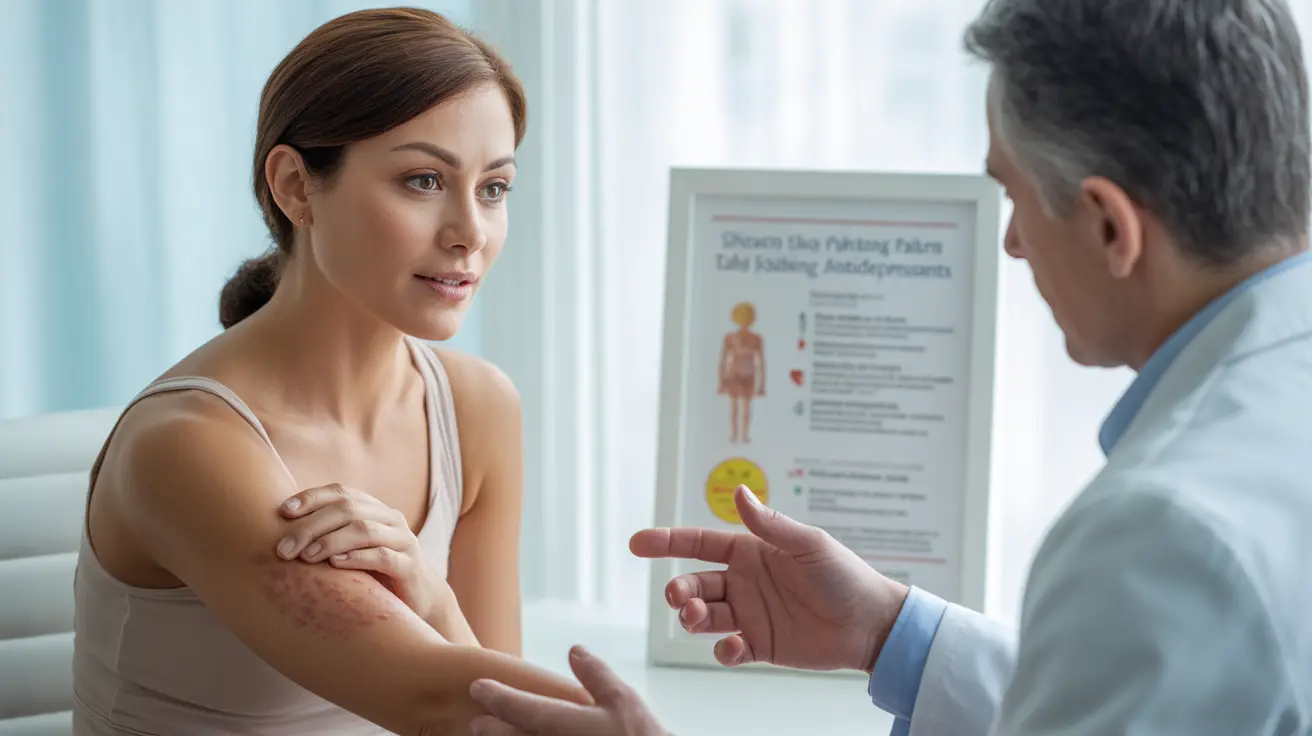Living with acne while taking antidepressants can be challenging, as some medications may trigger or worsen skin breakouts. Understanding the connection between antidepressants and acne, along with effective management strategies, can help you maintain both your mental health and clear skin.
This comprehensive guide explores the relationship between antidepressant medications and acne, offering practical solutions and treatment options while emphasizing the importance of maintaining your mental health treatment plan.
Understanding the Connection Between Antidepressants and Acne
Antidepressants can affect hormone levels in your body, particularly androgens and cortisol, which may influence sebum production and skin inflammation. Some medications may also alter your body's immune response or affect how your skin regulates oil production, potentially leading to acne breakouts.
Common Types of Antidepressant-Related Acne
Antidepressant-induced acne typically presents in several forms:
- Hormonal acne along the jawline and chin
- Inflammatory papules and pustules
- Sudden onset breakouts after starting medication
- Persistent acne that doesn't respond to typical treatments
Effective Skincare Strategies
Gentle Cleansing Routine
Develop a consistent skincare routine using non-comedogenic products that won't clog pores. Focus on gentle cleansers that maintain your skin's natural barrier while effectively removing excess oil and debris.
Active Ingredients
Consider incorporating these acne-fighting ingredients into your routine:
- Salicylic acid for unclogging pores
- Benzoyl peroxide for reducing bacteria
- Niacinamide for oil control
- Alpha-hydroxy acids for gentle exfoliation
Working with Healthcare Providers
Managing antidepressant-related acne requires a collaborative approach between your mental health provider and dermatologist. They can work together to adjust your treatment plan while maintaining the effectiveness of your mental health medication.
Lifestyle Modifications
Dietary Considerations
While diet alone may not cure antidepressant-related acne, certain dietary changes can support clearer skin:
- Reducing dairy intake
- Limiting high-glycemic foods
- Increasing omega-3 rich foods
- Staying well-hydrated
Stress Management
Implementing stress-reduction techniques can help manage both anxiety and acne breakouts:
- Regular exercise
- Meditation or mindfulness practices
- Adequate sleep
- Relaxation techniques
Frequently Asked Questions
How do antidepressants cause acne and what hormone changes are involved?
Antidepressants can affect hormone levels, particularly androgens and cortisol, which may increase sebum production and inflammation in the skin. These medications can also impact your body's immune response and alter how your skin regulates oil production, potentially leading to acne formation.
What are the best skincare treatments to manage acne caused by antidepressants?
The most effective treatments include gentle, non-comedogenic cleansers, products containing salicylic acid, benzoyl peroxide, or niacinamide, and maintaining a consistent skincare routine. Some people may also benefit from prescription topical treatments prescribed by a dermatologist.
Can changing or stopping antidepressant medication help reduce acne without harming mental health?
Never stop or change your antidepressant medication without consulting your healthcare provider. If acne is a concern, discuss alternative medications or adjusting dosages with your doctor while ensuring your mental health remains properly managed.
How can lifestyle changes like diet and stress management improve acne triggered by antidepressants?
Lifestyle modifications such as maintaining a balanced diet low in dairy and high-glycemic foods, regular exercise, stress management techniques, and adequate sleep can help manage acne symptoms. These changes support overall skin health while maintaining mental well-being.
When should I see a dermatologist for acne related to taking antidepressants?
Consult a dermatologist if your acne is severe, persistent, or not responding to over-the-counter treatments. Also seek professional help if the acne is causing scarring or significantly impacting your self-esteem. The dermatologist can work with your mental health provider to develop an appropriate treatment plan.




